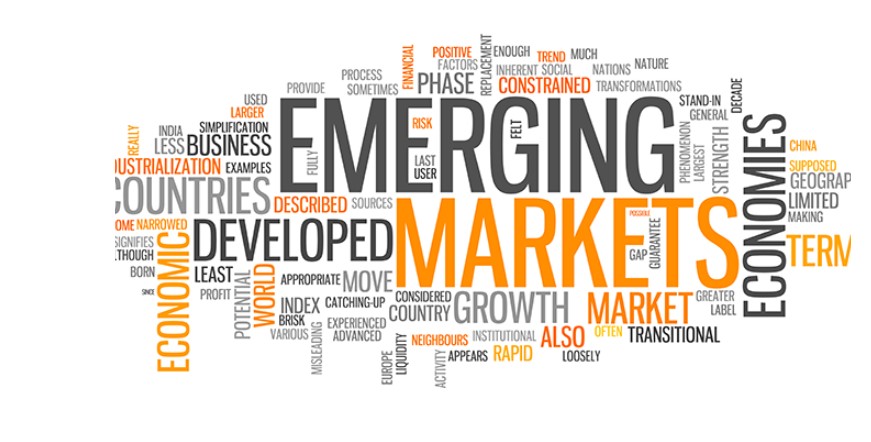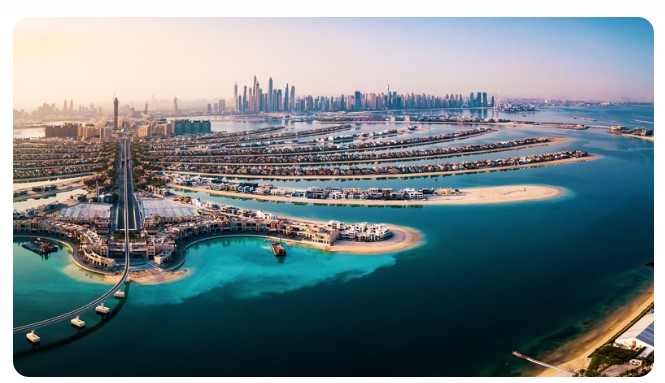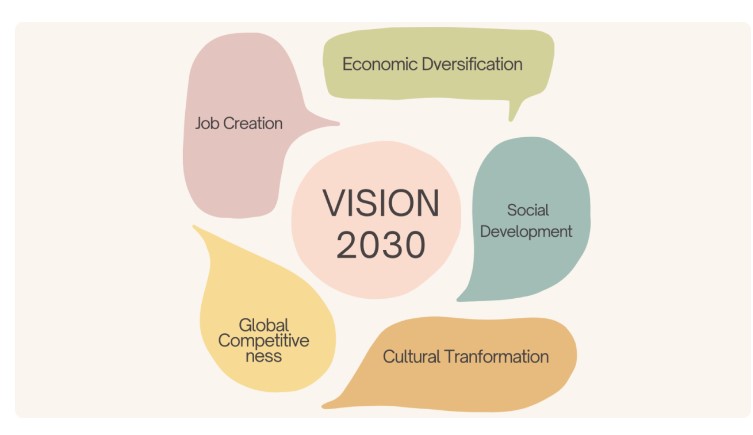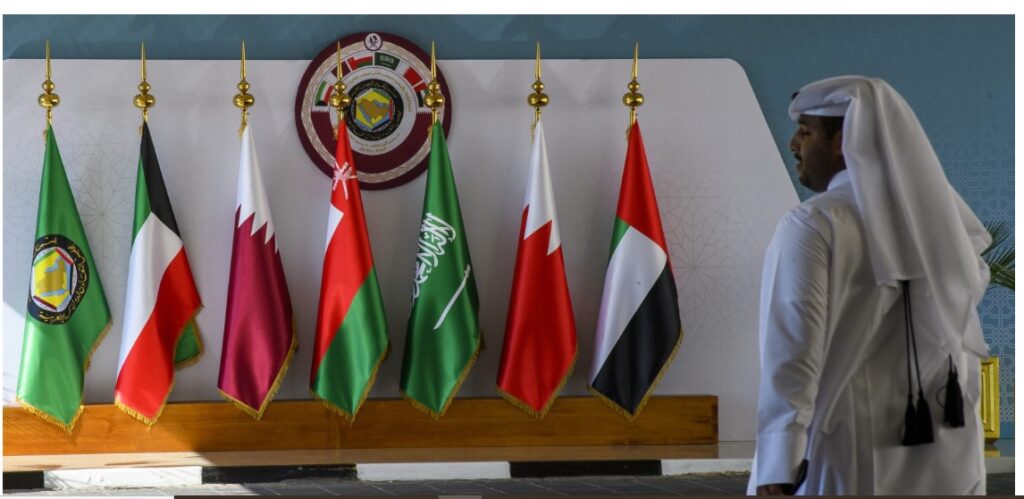
The United Arab Emirates (UAE) is rapidly evolving as a global economic hub, attracting investments and talent from around the world. As the nation continues to diversify its economy beyond oil, several emerging industries are gaining prominence. These sectors not only offer promising career opportunities but also reflect the UAE’s vision for a sustainable and innovative future.
Technology and Innovation
The UAE is positioning itself as a leader in technology and innovation, particularly in areas like artificial intelligence (AI), blockchain, and fintech. With the launch of initiatives such as the UAE Artificial Intelligence Strategy and Dubai’s Blockchain Strategy, the tech sector is booming, creating a wealth of job opportunities for skilled professionals in software development, data science, and cybersecurity.
Renewable Energy
As part of its commitment to sustainability, the UAE is investing heavily in renewable energy projects. The nation is home to some of the world’s largest solar parks, and its renewable energy sector is expanding rapidly. Careers in clean energy, including solar and wind power, energy storage, and green construction, are on the rise, offering a sustainable future for job seekers.
Healthcare and Biotechnology
The UAE’s healthcare and biotechnology sectors are experiencing significant growth, driven by an increasing focus on advanced medical research, pharmaceutical development, and cutting-edge healthcare technologies. The government’s commitment to improving healthcare standards and its investment in medical innovation create numerous career opportunities for healthcare professionals, researchers, and biotech specialists.
Tourism and Hospitality
Tourism remains a cornerstone of the UAE’s economy, with the nation continually developing new attractions and luxury experiences. The upcoming mega-projects, such as the Museum of the Future and various entertainment districts, are set to boost the hospitality sector. Professionals in hotel management, event planning, and tourism marketing will find abundant opportunities as the industry continues to expand.
E-commerce and Retail
The e-commerce and retail sectors in the UAE have seen exponential growth, particularly with the rise of online shopping and digital payments. Companies are increasingly investing in digital transformation, leading to a surge in demand for professionals skilled in e-commerce management, digital marketing, and supply chain logistics.
Real Estate and Urban Development
The UAE’s real estate and urban development industry is booming, with large-scale projects such as smart cities and sustainable housing developments leading the way. This sector offers extensive opportunities for architects, urban planners, real estate developers, and construction professionals, as the nation continues to build innovative and future-proof infrastructure.
The UAE’s commitment to diversifying its economy and embracing innovation makes it a land of opportunity for professionals across various industries. As these sectors continue to grow, they will play a pivotal role in shaping the UAE’s economic landscape, making it an ideal destination for career advancement and growth.
Navigating the Job Market in the MENA Region: Tips for Expats and Locals

The Middle East and North Africa (MENA) region presents a dynamic and diverse job market, offering opportunities across a wide range of industries. Whether you are an expat seeking new challenges or a local looking to advance your career, understanding the nuances of the MENA job market is essential for success. Here are some key tips to help you navigate this vibrant landscape.
Research the Market Trends
Before diving into your job search, it’s crucial to understand the current market trends in the MENA region. Key industries such as technology, healthcare, finance, and construction are experiencing significant growth. Research which sectors are booming in your target country, and tailor your job search accordingly. For expats, understanding the local demand for specific skills can give you a competitive edge.
Leverage Professional Networks
Networking is a powerful tool in the MENA job market. Building and maintaining professional relationships can open doors to job opportunities that may not be advertised. Attend industry events, join local and online professional groups, and engage with peers on platforms like LinkedIn. For expats, connecting with other expatriates who have successfully navigated the job market can provide valuable insights and referrals.
Customize Your CV and Cover Letter
Your CV and cover letter should be tailored to the specific job and industry you are applying for. Highlight your relevant experience and skills that align with the job description. In the MENA region, where competition can be fierce, a well-crafted CV that reflects the requirements of the local job market is essential. For locals, emphasizing your knowledge of the regional market and cultural nuances can set you apart.
Understand Local Labor Laws
Familiarizing yourself with the labor laws of the specific MENA country you are targeting is vital, especially for expats. Each country has its own set of regulations regarding work permits, contracts, and employee rights. Understanding these laws will help you avoid legal pitfalls and ensure that your employment terms are fair and compliant with local standards.
Develop Cultural Awareness
Cultural sensitivity and awareness are crucial when working in the MENA region. Understanding the local customs, business etiquette, and communication styles will not only help you build better relationships with colleagues but also enhance your job performance. For expats, adapting to the local culture is key to integrating into the workplace and thriving in your new environment.
Utilize Recruitment Agencies and Job Portals
Recruitment agencies and online job portals are valuable resources for job seekers in the MENA region. Many employers in the region rely on these platforms to find qualified candidates. Register with reputable agencies that specialize in your industry and regularly check job portals for new listings. For locals, tapping into regional job portals can provide access to opportunities tailored to the MENA market.
Prepare for Interviews
Interview preparation is critical to making a strong impression on potential employers. Research the company, understand its values and goals, and be prepared to discuss how your experience aligns with their needs. In the MENA region, interviews often include questions about your ability to work in a multicultural environment, so be ready to share examples of your adaptability and cross-cultural communication skills.
Navigating the job market in the MENA region requires a strategic approach, cultural understanding, and a willingness to adapt. Whether you are an expat seeking a new adventure or a local aiming to advance your career, these tips can help you successfully secure your next opportunity in this diverse and rapidly evolving region.
The Future of Work in Dubai: Trends Shaping the MENA Job Market

Dubai, a beacon of innovation and growth in the Middle East, is at the forefront of shaping the future of work in the MENA region. As technology advances and economic diversification accelerates, several trends are emerging that will define the job market in Dubai and beyond. Here’s a look at the key trends that are set to transform the employment landscape in the MENA region.
Digital Transformation and AI Integration
Digital transformation is revolutionizing businesses across Dubai, driving the adoption of artificial intelligence (AI) and automation. Companies are increasingly leveraging AI to enhance productivity, streamline operations, and improve customer experiences. This shift is creating a surge in demand for tech-savvy professionals skilled in AI, machine learning, data analysis, and cybersecurity. The future job market will see a growing need for roles focused on managing and integrating these advanced technologies.
Remote Work and Flexible Workspaces
The COVID-19 pandemic has accelerated the acceptance of remote work and flexible workspaces in Dubai. Businesses are embracing hybrid models that allow employees to work both remotely and from the office. This trend is expected to continue, with companies investing in digital infrastructure and collaboration tools to support remote work. Professionals who are adaptable and proficient in remote work technologies will find ample opportunities in this evolving work environment.
Sustainability and Green Jobs
Dubai’s commitment to sustainability is driving the creation of green jobs across various sectors. The city’s initiatives to promote renewable energy, sustainable construction, and eco-friendly practices are leading to an increased demand for professionals in environmental science, sustainable engineering, and green project management. As Dubai continues to prioritize sustainability, the job market will see a significant rise in opportunities related to environmental conservation and sustainable development.
E-commerce and Digital Marketing
The e-commerce sector in Dubai is experiencing exponential growth, fueled by changing consumer behaviors and digital advancements. This growth is driving demand for professionals in digital marketing, e-commerce management, logistics, and supply chain management. Companies are looking for innovative ways to enhance their online presence and provide seamless customer experiences, creating a wealth of opportunities for digital marketing specialists and e-commerce experts.
Healthcare and Biotechnology
The healthcare and biotechnology sectors are expanding rapidly in Dubai, with a focus on advanced medical research, telemedicine, and biotechnology innovations. The city’s investment in state-of-the-art healthcare facilities and biotech research centers is generating demand for healthcare professionals, researchers, and biotech specialists. The future of work in this sector will be shaped by advancements in medical technology and personalized healthcare solutions.
Creative Industries and Digital Content
Dubai’s creative industries are thriving, with a growing emphasis on digital content creation, media, and entertainment. The rise of digital platforms and social media has opened up new avenues for content creators, graphic designers, and digital marketing experts. The job market is expanding to accommodate roles in digital media production, content strategy, and creative arts, reflecting the city’s vibrant and diverse cultural landscape.
Education and Skill Development
As the job market evolves, continuous education and skill development are becoming increasingly important. Dubai is investing in education and training programs to equip the workforce with the skills needed for the future. Professionals who embrace lifelong learning and upskilling will be better positioned to adapt to the changing job market. The focus on education will also create opportunities in teaching, training, and educational technology.
The future of work in Dubai is being shaped by technological advancements, sustainability efforts, and a shift towards flexible work models. These trends are not only transforming the job market in Dubai but also setting the pace for the broader MENA region. By staying informed and adaptable, professionals can seize the opportunities presented by these emerging trends and thrive in the dynamic landscape of the future.
How to Stand Out in a Competitive Job Market in the UAE

The UAE’s job market is vibrant and competitive, attracting talent from around the world. To stand out in this dynamic landscape, job seekers need to strategically showcase their skills and expertise. Here’s how you can differentiate yourself and make a lasting impression in the UAE’s competitive job market.
Build a Strong Personal Brand
Your personal brand is your professional identity and how you present yourself to potential employers. Craft a compelling LinkedIn profile that highlights your achievements, skills, and career goals. Ensure your online presence reflects your expertise and aligns with the job roles you are targeting. A strong personal brand helps you stand out and makes you memorable to recruiters and hiring managers.
Tailor Your CV and Cover Letter
Customize your CV and cover letter for each application to align with the job description and company culture. Highlight specific experiences and achievements that match the requirements of the role. Use keywords from the job listing to pass through Applicant Tracking Systems (ATS) and ensure your CV catches the eye of recruiters.
Showcase Your Unique Skills and Expertise
In a competitive job market, demonstrating unique skills or expertise can set you apart. Whether it’s advanced technical skills, language proficiency, or industry-specific knowledge, make sure to emphasize what makes you different. Certifications, specialized training, or notable projects can also enhance your profile and make you a more attractive candidate.
Network Effectively
Networking is crucial in the UAE’s job market. Build and maintain relationships with industry professionals, attend networking events, and engage in online communities relevant to your field. Join local professional associations or groups and participate in industry-related discussions. Leveraging your network can lead to valuable referrals and insider information about job opportunities.
Gain Relevant Experience
Relevant experience is highly valued by employers. If you are new to the UAE job market or transitioning to a new industry, consider internships, volunteer work, or freelance projects to gain experience and demonstrate your commitment. Practical experience not only strengthens your CV but also provides you with insights into the local job market and industry expectations.
Develop a Global Perspective
The UAE is a melting pot of cultures and international business practices. Demonstrating a global perspective and cross-cultural competence can be advantageous. Showcase your ability to work effectively in diverse environments and highlight any international experience or collaborations. Employers value candidates who can navigate and thrive in a multicultural setting.
Prepare for Interviews Thoroughly
Effective interview preparation can make a significant difference. Research the company thoroughly, understand its values and culture, and be prepared to discuss how your skills and experiences align with their needs. Practice common interview questions and prepare examples that illustrate your problem-solving abilities and achievements.
Stay Updated with Industry Trends
Keeping up with the latest industry trends and developments is essential. Stay informed about advancements, market shifts, and emerging technologies relevant to your field. Demonstrating your knowledge of current trends during interviews or in your cover letter shows that you are proactive and well-informed.
Seek Professional Development Opportunities
Continuing education and professional development can enhance your skills and keep you competitive. Pursue relevant certifications, attend workshops, and engage in training programs that add value to your professional profile. Employers appreciate candidates who are committed to ongoing learning and growth.
Emphasize Soft Skills
While technical skills are important, soft skills such as communication, teamwork, and leadership are equally valued. Highlight your soft skills through examples of past experiences and achievements. Employers look for candidates who can effectively collaborate, lead teams, and contribute positively to the company culture.
In the competitive job market of the UAE, standing out requires a combination of strategic branding, tailored applications, and proactive networking. By showcasing your unique skills, staying informed, and continuously developing your professional abilities, you can enhance your chances of securing your ideal job and advancing your career in this dynamic region.
Key Skills Employers in the MENA Region Are Looking For

As the MENA region continues to grow and diversify, employers are increasingly seeking candidates with a specific set of skills that align with the evolving market demands. Whether you’re an expat looking to enter the MENA job market or a local professional aiming to enhance your career prospects, understanding these key skills can help you stand out. Here’s a look at the most sought-after skills by employers in the MENA region.
Digital and Technological Proficiency
With rapid advancements in technology, digital skills are crucial across all sectors. Employers are looking for candidates who are proficient in areas such as artificial intelligence (AI), data analytics, cybersecurity, and software development. Familiarity with emerging technologies and digital tools can give you a significant edge in the job market.
Cross-Cultural Communication
The MENA region is known for its cultural diversity, and employers value professionals who can navigate and communicate effectively across different cultural contexts. Strong cross-cultural communication skills are essential for building relationships, managing teams, and working with international clients or partners.
Project Management
Effective project management skills are highly sought after in the MENA region. Employers look for individuals who can plan, execute, and oversee projects efficiently. Skills in project management methodologies, budgeting, risk management, and team leadership are crucial for roles in various industries, including construction, IT, and healthcare.
Adaptability and Problem-Solving
In a rapidly changing market, adaptability and problem-solving skills are essential. Employers appreciate candidates who can quickly adjust to new challenges, think creatively to solve problems, and demonstrate resilience in the face of change. These skills are particularly valuable in dynamic sectors such as technology and finance.
Financial Acumen
As the MENA region continues to develop its financial and business sectors, financial acumen is increasingly important. Employers seek professionals with strong skills in financial analysis, budgeting, and financial planning. Understanding financial principles and being able to make data-driven decisions are key to success in finance-related roles.
Sales and Marketing Expertise
Sales and marketing skills are crucial for driving business growth and expanding market reach. Employers look for candidates with expertise in digital marketing, brand management, and sales strategy. Proficiency in tools such as SEO, content marketing, and social media management can be particularly valuable.
Leadership and Team Management
Effective leadership and team management skills are highly regarded. Employers seek individuals who can inspire and lead teams, manage performance, and drive organizational success. Skills in conflict resolution, team building, and strategic planning are essential for managerial and leadership roles.
Customer Service Excellence
Customer service remains a critical aspect of many industries, especially in sectors like retail, hospitality, and healthcare. Employers value candidates who can provide exceptional customer service, handle inquiries and complaints professionally, and contribute to a positive customer experience.
Innovation and Creativity
Innovation and creativity are increasingly important as companies seek to stay competitive and differentiate themselves. Employers are looking for candidates who can bring fresh ideas, drive innovation, and contribute to the development of new products, services, or processes.
Language Skills
Proficiency in multiple languages is a significant asset in the MENA region. While Arabic is the predominant language, fluency in English is also essential, especially in multinational companies and sectors such as finance and technology. Additional language skills can further enhance your employability and ability to work with diverse teams.
The MENA region’s job market is evolving, and employers are looking for candidates who possess a blend of technical skills, cultural competencies, and soft skills. By developing and showcasing these key skills, you can enhance your attractiveness to potential employers and position yourself for success in this dynamic and diverse region.
Why Dubai is the Best Place for Career Growth in the Middle East

Dubai has established itself as a premier destination for career growth in the Middle East, attracting professionals from around the world. Its unique blend of economic dynamism, strategic location, and quality of life makes it an unparalleled hub for career advancement. Here’s why Dubai stands out as the best place for career growth in the region.
Thriving Economic Hub
Dubai’s robust economy, diversified across sectors such as finance, technology, tourism, and real estate, provides ample opportunities for career advancement. As a global financial center and a key player in the Middle East’s economic landscape, Dubai offers a vibrant job market with high-demand roles in various industries. The city’s economic resilience and strategic investments ensure sustained growth and career opportunities.
World-Class Infrastructure
Dubai is renowned for its state-of-the-art infrastructure, including modern office spaces, advanced technology, and efficient transport systems. The city’s infrastructure supports business operations and offers a conducive environment for professional development. With its iconic landmarks and cutting-edge facilities, Dubai provides a dynamic and inspiring backdrop for career growth.
Tax-Free Income
One of the most attractive features of working in Dubai is the tax-free income. The absence of personal income tax allows professionals to maximize their earnings and invest in their future. This financial advantage makes Dubai an appealing destination for individuals seeking to enhance their earning potential and achieve financial stability.
Diverse Job Opportunities
Dubai’s diverse economy creates a wide range of job opportunities across various sectors. From finance and real estate to technology and healthcare, professionals can find roles that match their skills and career goals. The city’s commitment to innovation and growth ensures that new and emerging industries continue to create job opportunities.
Global Business Hub
Dubai’s strategic location at the crossroads of Europe, Asia, and Africa makes it a global business hub. The city’s connectivity and status as a major trade and investment center attract multinational corporations and global businesses. This international presence provides professionals with the chance to work in a global environment and gain valuable international experience.
High Quality of Life
Dubai offers a high quality of life with world-class amenities, safety, and a cosmopolitan lifestyle. The city is known for its luxury housing, vibrant cultural scene, and recreational facilities. The exceptional living standards contribute to overall job satisfaction and well-being, making Dubai an attractive place for career-focused individuals.
Innovative and Future-Forward Environment
Dubai’s focus on innovation and technological advancement positions it as a leader in future industries. Initiatives like Dubai Smart City and advancements in sectors such as AI, blockchain, and renewable energy drive the city’s reputation as a forward-thinking business hub. Professionals seeking to be at the forefront of technological and industry trends will find Dubai a compelling environment.
Networking and Professional Growth
The city’s thriving business community and numerous industry events provide ample networking opportunities. Dubai hosts various conferences, seminars, and workshops that facilitate professional development and connections with industry leaders. Networking in such a vibrant environment can lead to career growth and new opportunities.
Cultural Diversity
Dubai’s multicultural environment fosters a dynamic and inclusive workplace. Working in a diverse team enhances professional growth and exposes individuals to different perspectives and ideas. The city’s openness to international talent contributes to a rich and collaborative work culture.
Supportive Business Ecosystem
Dubai’s supportive business ecosystem, including government initiatives and free zones, offers a favorable environment for career growth. Programs like Dubai Future Accelerators and various business incubators support innovation and entrepreneurship. This ecosystem provides professionals with the resources and support needed to excel in their careers.
Exploring Career Opportunities in Saudi Arabia’s Vision 2030

Saudi Arabia’s Vision 2030 is a transformative plan designed to diversify the economy, reduce dependency on oil, and enhance various sectors to foster sustainable growth. This ambitious vision opens a wealth of career opportunities across multiple industries. Here’s a guide to exploring the career prospects emerging from Saudi Arabia’s Vision 2030.
Renewable Energy and Sustainability
Vision 2030 emphasizes the development of renewable energy sources and sustainability initiatives. Saudi Arabia is investing heavily in solar and wind energy projects as part of its commitment to reducing carbon emissions. Careers in renewable energy, environmental engineering, and sustainability management are burgeoning, offering opportunities for professionals passionate about clean energy and environmental conservation.
Tourism and Entertainment
One of the central goals of Vision 2030 is to boost tourism and entertainment. The Saudi government is developing new tourist attractions, cultural sites, and entertainment venues to position the country as a global tourist destination. This expansion creates job opportunities in tourism management, hospitality, event planning, and cultural promotion. With projects like NEOM and the Red Sea Development, the tourism sector is poised for significant growth.
Healthcare and Biotechnology
The healthcare sector is a major focus of Vision 2030, with significant investments in medical facilities, research, and biotechnology. Saudi Arabia aims to improve healthcare standards and innovate in medical technologies. Career opportunities are expanding for healthcare professionals, researchers, and biotech specialists, driven by the government’s commitment to enhancing healthcare infrastructure and services.
Technology and Innovation
Vision 2030 places a strong emphasis on technological advancement and innovation. The Saudi government is fostering a tech-driven economy with initiatives in AI, blockchain, and smart cities. Careers in technology, data science, software development, and cybersecurity are increasingly in demand. The focus on digital transformation presents opportunities for tech-savvy professionals to contribute to the country’s growth.
Finance and Investment
Saudi Arabia’s Vision 2030 includes a focus on developing the financial sector and attracting foreign investment. The establishment of financial hubs, such as the Saudi Arabian Monetary Authority (SAMA) and the development of capital markets, creates career prospects in finance, investment banking, and financial analysis. Professionals in these fields will find ample opportunities as the country seeks to diversify its financial landscape.
Education and Training
Improving education and training is a key component of Vision 2030. The Saudi government is investing in educational reforms, vocational training, and skill development programs to build a skilled workforce. Opportunities abound for educators, trainers, and curriculum developers as the country works to enhance its education system and prepare a new generation of professionals.
Infrastructure and Construction
The Vision 2030 plan includes large-scale infrastructure projects, including the development of smart cities, transportation networks, and urban development. Careers in construction management, civil engineering, and urban planning are in high demand as the country undertakes ambitious projects to modernize its infrastructure and support economic growth.
Manufacturing and Industrialization
Saudi Arabia aims to increase its manufacturing and industrial capabilities as part of Vision 2030. The focus is on developing local industries and reducing reliance on imports. Careers in manufacturing, industrial engineering, and supply chain management are set to expand, driven by efforts to boost industrial output and create job opportunities within the sector.
Cultural and Creative Industries
Vision 2030 seeks to enhance the cultural and creative sectors, including arts, media, and entertainment. The development of cultural institutions, film industries, and creative hubs creates job opportunities for artists, media professionals, and cultural managers. Saudi Arabia’s push to become a cultural and creative hub offers exciting prospects for those in these fields.
Entrepreneurship and Startups
Entrepreneurship is a key focus of Vision 2030, with initiatives to support startups and small businesses. The government is fostering an environment conducive to innovation and entrepreneurship, offering opportunities for startup founders, business consultants, and innovation managers. Programs and incentives aimed at boosting the startup ecosystem present numerous opportunities for aspiring entrepreneurs.
Saudi Arabia’s Vision 2030 is reshaping the country’s economic landscape and creating diverse career opportunities across various sectors. By aligning your career aspirations with the goals of Vision 2030, you can position yourself to take advantage of the emerging opportunities and contribute to the country’s ambitious transformation.
Joint Agreements Between Gulf Cooperation Council Countries Related to Foreign Labor

The Gulf Cooperation Council (GCC) countries—comprising Saudi Arabia, the United Arab Emirates, Qatar, Kuwait, Oman, and Bahrain—share a common goal of managing and regulating foreign labor effectively. Joint agreements and frameworks within the GCC are designed to standardize labor policies, improve worker rights, and streamline labor mobility across member states. Here’s an overview of key joint agreements related to foreign labor within the GCC.
- GCC Labor Market Policy Framework
The GCC Labor Market Policy Framework aims to harmonize labor laws and regulations across member states. This framework includes guidelines on employment contracts, worker rights, and employer obligations. By standardizing these policies, the GCC seeks to create a more consistent and transparent labor market that benefits both employers and foreign workers. - GCC Agreement on Labor Mobility
The GCC Agreement on Labor Mobility facilitates the movement of foreign workers between GCC countries. This agreement aims to ease the transfer of labor across borders, allowing workers to move between member states without facing significant bureaucratic hurdles. The goal is to create a more flexible and efficient labor market, where skills and expertise can be utilized across the region. - Unified Labor Visa System
The GCC countries have worked towards a unified labor visa system to simplify the process of obtaining work permits for foreign nationals. This system seeks to reduce administrative burdens and create a more streamlined process for employers and employees. It includes standardized visa requirements and procedures, making it easier for foreign workers to secure employment across the GCC. - Joint Initiatives for Worker Rights Protection
The GCC has initiated joint efforts to protect the rights of foreign workers and ensure fair treatment. These initiatives include agreements on minimum wage standards, working conditions, and dispute resolution mechanisms. The aim is to address concerns related to worker exploitation and ensure that foreign workers are treated fairly and ethically. - GCC Employment Contracts Standardization
Standardizing employment contracts across GCC countries is a key focus of joint agreements. This standardization ensures that employment terms, including job responsibilities, salary, and benefits, are clearly defined and consistent. It also helps prevent disputes and misunderstandings between employers and foreign workers by providing clear and uniform contractual terms. - Coordination on Labor Market Data
The GCC member states coordinate efforts to collect and share labor market data. This data includes information on labor demand, employment trends, and workforce statistics. By sharing labor market data, GCC countries can better align their labor policies and address regional labor market challenges more effectively. - Collaborative Training and Development Programs
To address skill gaps and enhance the employability of foreign workers, the GCC countries collaborate on training and development programs. These programs aim to provide foreign workers with the skills needed to meet the demands of the regional job market. Joint initiatives include vocational training, skill development workshops, and certification programs. - Regulations on Recruitment Agencies
Joint agreements within the GCC address the regulation of recruitment agencies that facilitate the hiring of foreign workers. These regulations ensure that recruitment agencies operate transparently and ethically, preventing practices such as human trafficking and fraudulent recruitment. The goal is to protect foreign workers from exploitation and ensure fair recruitment practices. - Health and Safety Standards
The GCC member states have agreed on health and safety standards for foreign workers. These standards cover workplace safety, access to healthcare, and emergency response protocols. Ensuring that foreign workers have access to safe working conditions and adequate healthcare is a priority for the GCC, aimed at improving overall worker well-being. - Dispute Resolution Mechanisms
Joint agreements include mechanisms for resolving labor disputes between foreign workers and employers. These mechanisms provide a framework for addressing grievances and ensuring that workers have access to fair and impartial resolution processes. The goal is to create a supportive environment where workers’ rights are upheld, and conflicts are resolved efficiently.
The joint agreements between GCC countries related to foreign labor reflect a commitment to creating a fair, efficient, and standardized labor market. By harmonizing policies and regulations, the GCC aims to enhance labor mobility, protect worker rights, and support the region’s economic growth.
Exploring Remote Work Opportunities in the MENA Region: A Growing Trend

Remote work has gained significant traction worldwide, and the MENA region is embracing this trend as part of its digital transformation. With advancements in technology and changes in workplace culture, remote work is becoming an essential part of the region’s economic landscape.
The Shift to Remote Work
Remote work, which allows employees to work from locations outside the traditional office, has grown rapidly, especially during the COVID-19 pandemic. The MENA region, known for its dynamic economy, is gradually adopting this flexible work model.
Key Countries Embracing Remote Work
Countries like the UAE, Saudi Arabia, and Egypt are leading the remote work revolution in the MENA region. The UAE, for instance, offers digital nomad visas, while Saudi Arabia’s Vision 2030 plan emphasizes technology and innovation. Egypt is becoming a hub for remote work in the tech industry, attracting global companies.
Technology’s Role
The success of remote work in the MENA region is heavily dependent on technology. Improvements in internet infrastructure and the adoption of collaborative tools like Zoom and Slack have made remote work feasible and efficient.
Benefits of Remote Work
Remote work offers numerous benefits, including increased productivity, better work-life balance, and access to a global talent pool. These advantages are particularly appealing in the MENA region, where companies can now tap into expertise from around the world.
Challenges
However, remote work in the MENA region faces challenges such as cultural barriers, internet connectivity issues, and cybersecurity concerns. Organizations need to invest in training and cybersecurity measures to overcome these obstacles.
Conclusion
The MENA region is on the path to becoming a major player in the global remote work landscape. By embracing remote work and addressing its challenges, the region can unlock new opportunities for growth and innovation.
The Impact of Technology on Job Opportunities in the UAE and MENA
Introduction
Technology is transforming industries across the globe, and the UAE and the broader MENA region are no exceptions. From automation to artificial intelligence, technological advancements are reshaping the job market, creating new opportunities while also challenging traditional roles.
Digital Transformation and Economic Growth
The UAE and MENA countries are investing heavily in digital transformation, which is driving economic growth. Initiatives like the UAE’s Vision 2021 and Saudi Arabia’s Vision 2030 emphasize the importance of technology in achieving economic diversification. This focus is leading to the creation of new job sectors and expanding existing ones.
Emerging Sectors
With the rise of technology, sectors such as IT, fintech, and renewable energy are booming. The demand for professionals in data science, cybersecurity, and AI is increasing, opening up numerous opportunities for skilled workers in the region. Additionally, the push towards smart cities in the UAE is generating jobs in urban planning, infrastructure, and IoT (Internet of Things).
Automation and Job Displacement
While technology creates new jobs, it also leads to the displacement of traditional roles, particularly in sectors like manufacturing and retail. Automation and AI are replacing routine tasks, pushing workers to adapt by acquiring new skills. Reskilling and upskilling initiatives are becoming crucial to ensure the workforce remains competitive in the evolving job market.
The Gig Economy
Technology is also fueling the gig economy, where short-term contracts and freelance work are becoming more common. Platforms like Upwork and Freelancer are providing opportunities for individuals to work on a global scale, particularly in the MENA region. This shift is giving rise to a more flexible workforce but also bringing challenges related to job security and benefits.
Challenges and Opportunities
The rapid pace of technological change presents both challenges and opportunities. On one hand, there is a growing need for digital literacy and technical skills. On the other hand, technology enables businesses to innovate and expand, creating a demand for new roles and expertise. The challenge for the region lies in balancing job creation with the need for continuous learning and adaptation.
Conclusion
Technology is a double-edged sword in the UAE and MENA job markets, creating new opportunities while also disrupting traditional roles. The future will depend on how well the region adapts to these changes, ensuring that the workforce is equipped with the skills needed to thrive in a tech-driven economy.
Networking Strategies for Job Seekers in the UAE and MENA: Building Connections That Matter
Introduction
Networking is a critical component of job hunting, especially in the UAE and MENA region, where personal connections often play a significant role in career advancement. Effective networking can open doors to new opportunities, provide valuable insights, and help job seekers build relationships that matter.
The Importance of Networking in the UAE and MENA
In the UAE and MENA, networking is not just about exchanging business cards; it’s about building genuine relationships that can lead to career opportunities. Personal recommendations and referrals are highly valued, making networking a powerful tool in the job search process.
Top Networking Strategies for Job Seekers

Leverage Professional Social Media Platforms
Platforms like LinkedIn are essential for networking in today’s job market. Create a compelling profile that highlights your skills, experiences, and accomplishments. Engage with industry-related content, join relevant groups, and connect with professionals in your field.
Attend Industry Events and Conferences
Industry events, conferences, and seminars are excellent opportunities to meet potential employers and industry leaders. In the UAE and MENA, events such as Gitex Technology Week and the Arab Health Exhibition provide platforms for networking with key players in various sectors.
Join Local Professional Organizations
Joining local professional organizations or industry associations can expand your network and provide access to exclusive job opportunities. Organizations like the Dubai Chamber of Commerce and the Abu Dhabi Businesswomen Council offer networking events and resources for job seekers.
Utilize Alumni Networks
Alumni networks are a valuable resource for job seekers. Many universities in the UAE and MENA have active alumni associations that offer networking events, mentorship programs, and job boards. Connecting with fellow alumni can lead to referrals and job opportunities.
Engage in Online Communities
Online communities and forums related to your industry can provide networking opportunities beyond your immediate geographic area. Participate in discussions, share your expertise, and connect with industry peers to build relationships and learn about job openings.
Building Genuine Connections
Focus on Quality, Not Quantity
Instead of trying to connect with as many people as possible, focus on building meaningful relationships with a few key individuals. Engage in conversations, offer help, and show genuine interest in their work. Quality connections are more valuable than a large network of superficial contacts.
Follow Up and Stay in Touch
After meeting someone, follow up with a personalized message or email. Keep the conversation going by sharing relevant information, offering assistance, or simply checking in periodically. Consistent follow-up helps maintain relationships and keeps you on their radar.
Offer Value to Your Network
Networking is a two-way street. Be proactive in offering value to your connections by sharing useful information, making introductions, or providing support. When you contribute to others’ success, they are more likely to reciprocate and help you in return.
Networking Etiquette
Be Professional and Respectful
Always approach networking with professionalism and respect. Be mindful of cultural norms in the MENA region, where formal greetings and proper etiquette are important. Show appreciation for others’ time and be courteous in all interaction
Prepare Your Elevator Pitch
Have a concise and engaging elevator pitch ready to introduce yourself. Highlight your skills, experiences, and career goals in a way that captures attention and prompts further discussion.
Conclusion
Effective networking is essential for job seekers in the UAE and MENA. By leveraging professional platforms, attending industry events, and building genuine connections, you can enhance your job search and open doors to new opportunities. Networking is not just about expanding your circle but about creating meaningful relationships that can support your career growth.